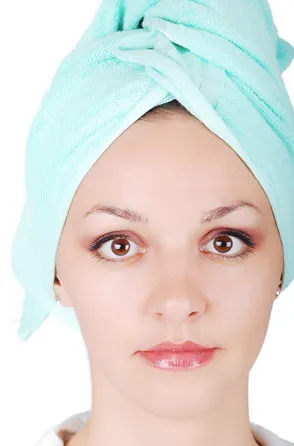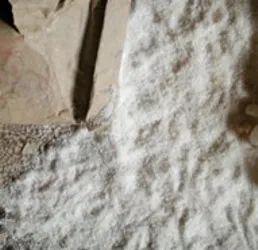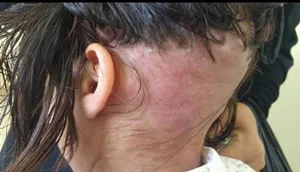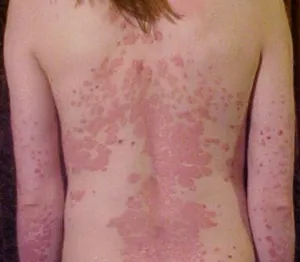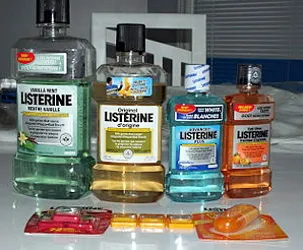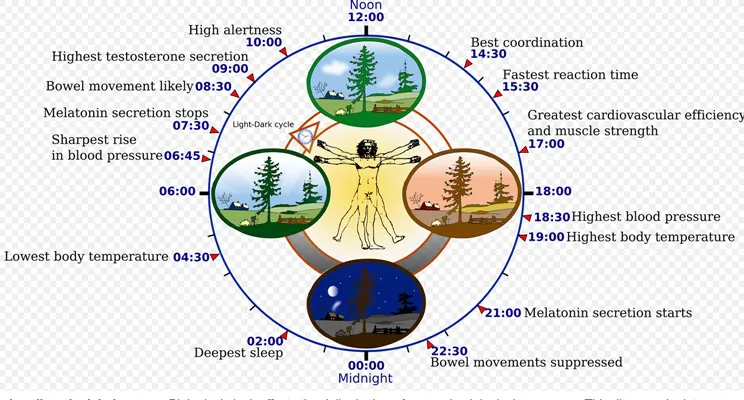
Seborrheic Dermatitis On The Scalp May Trigger Hair Loss
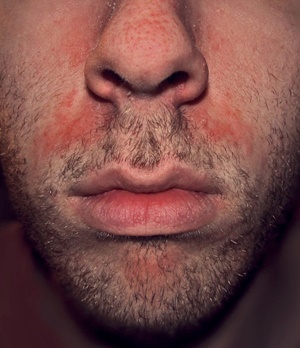 Seborrhoeic Dermatitis On The Face - Wikipedia
Seborrhoeic Dermatitis On The Face - WikipediaA common cause of scalp inflammation is Seborrhoeic Dermatitis, a skin disease that may cause red, scale-like rashes to develop on the scalp.
It can spread all across the scalp at different locations. The affected areas may look swollen and greasy, with a white or yellow scale.
Seborrhoeic Dermatitis Has A Persistently Itchy Rash
The rash caused by seborrhoeic dermatitis is often uncomfortably and persistently itchy. When itched with sharp fingernails, dry skin can flake off from the scalp.
The result is chronic dandruff.
Besides the scalp, seborrheic dermatitis usually affects oily areas of the body, such as the face, sides of the nose, eyebrows, ears, eyelids, and chest.
Scalp Inflammation
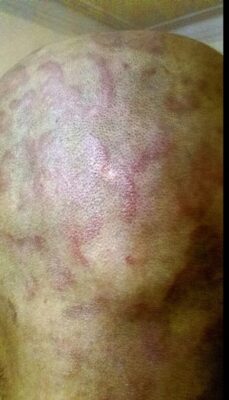 Seborrhoeic Dermatitis On Scalp - Wikipedia
Seborrhoeic Dermatitis On Scalp - WikipediaScalp inflammation is exactly what it sounds like. It's inflammation that affects the skin on the top, sides, and back of your head.
There’s no specific medical condition called scalp inflammation. However, a variety of conditions can cause your scalp to become inflamed. Seborrhoeic dermatitis is one case.
Although not all causes of scalp inflammation cause hair loss, some may cause ongoing hair shedding.
Or may block the scalp's successful absorption of hair loss topical medications.
Hair Loss Association With Scalp Inflammation
Hair loss is closely associated with seborrhoeic dermatitis because increased sebum production can create irritation and inflammation on the scalp.
This may cause intense itchiness. Scratching the scalp with sharp fingernails can damage hair follicles, which obstructs natural hair growth, causing hair to fall out.
Malassezia Imbalance On Scalp
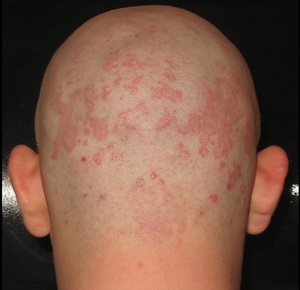 Seborrhoeic Dermatitis Back Of Scalp - Wikipedia
Seborrhoeic Dermatitis Back Of Scalp - WikipediaExcess sebum production can also cause an imbalance in Malassezia on the skin.
Malassezia is a type of naturally-occurring yeast that can cause inflammation and further damage to hair follicles.
If produced in excess and left untreated, increased Malassezia production can cause hair loss.
In some cases, this hair loss may become permanent if left untreated for extended periods of time.
Seborrhoeic Eczema
The disease is also called seborrhoeic eczema. It's also a chronic skin condition. It predominantly affects the scalp. As a result, it damages the hair follicles and hinders hair growth.
Seborrhoeic dermatitis is a fungal disease. It may go away without treatment, Or it may require the use of medicated shampoo.
 Physician - Unsplash.com
Physician - Unsplash.comIn some cases, it requires other long-term anti-fungal products.
Those products will help clear up symptoms and prevent flare-ups.
Seborrhoeic Dermatitis
Hair loss is closely associated with seborrhoeic dermatitis. Increased sebum production may create irritation and inflammation on the scalp. This may cause intense itchiness.
Scratching the scalp can damage hair follicles, which obstructs natural hair growth, causing hair to fall out.
Baseline Medical Diagnosis
 Image by Shingi Rice on Unsplash
Image by Shingi Rice on UnsplashYou have to take steps to determine the cause of your scalp inflammation. If you don't resolve the inflammation, you may be blocking potential hair regrowth.
Most non-responders, both men and women, who don’t respond well or at all too topical hair loss drugs have some degree of scalp inflammation.
Summary
A mild case of seborrhoeic dermatitis or seborrhoeic eczema, which manifests across the scalp, may not impact hair loss.
However, if it is not properly diagnosed and treated, it could lead to chronic scalp inflammation. When it;s repeatedly scratched if my trigger dandruff. In a worst-case scenario, the scarring could form from a chronic condition.
This might, at some point, influence hair loss.
Best wishes to all.Social Media Network Information
Please follow us on Twitter at: https://Twitter.com/HairBoutique. I look forward to meeting new people from all walks of Twitter and learning from their Tweets.


